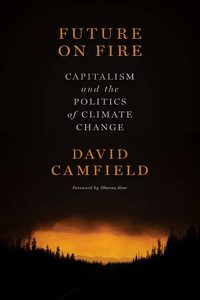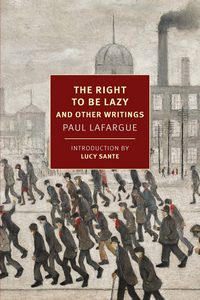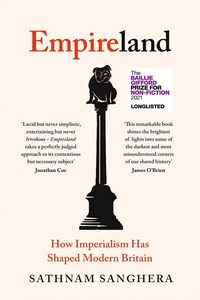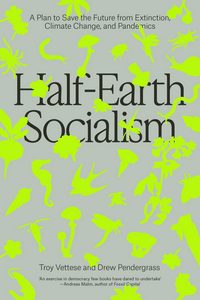Book reviews: Camfield / Lafargue / Sanghera / Vettese
 Ecosocialism
Ecosocialism
Future on Fire. Capitalism and the Politics of Climate Change. By David Camfield. PM Press. 2022. xiv+96pp.
This is a strange book which houses apparently conflicting viewpoints by the same author. It begins with a chapter (‘The Path We’re On’) focusing on the threat to life on Earth posed by the climate and ecological crises due to capitalism’s use of fossil fuels, its unstoppable focus on ‘short-term growth of profits’, and its inevitable failure to ensure that the abundance of food produced does not reach all those who need it. The author then goes on in three further chapters to talk about how he considers this threat could possibly be averted or mitigated by various actions within the framework of capitalism. Finally, in a short closing chapter, he explains, in apparent contradiction to what came before, how the only means of averting ‘environmental calamity’ is actually to get rid of capitalism altogether and set up what he calls ‘ecosocialism’, described as ‘an ecologically rational society founded on democratic control, social equality, and the predominance of use value’ and ‘a self-governing society with a non-destructive relationship to the rest of nature’, as well as providing ‘the context for a flourishing of human diversity’. He also points out that such a society has nothing in common with the so-called ‘communism’ of the Soviet Union, China and Cuba, which he describes as bureaucratic capitalist dictatorships with no aim of satisfying human needs, in the same way as all ‘existing states are capitalist states and ‘changing governments may lead to reforms, but it doesn’t alter which class rules’.
We can have no argument with analysis like this, yet, as already observed, it seems, strangely at odds with the rest of the book. Its longest chapter, for example, entitled ‘Mass Movements: Our Only Hope’, talks about how ‘collective action by large numbers of ordinary people’ can force governments into reforms, and ‘prepare people for future struggles’, since ‘the experience of defensive fights can change those who take part in them’. This, it goes on to say, can ‘open up possibilities for more far-reaching societal change’. All this smacks of the Trotskyist mantra that, if you engage people in ‘struggle’, this is likely to make them more radical and the whole thing will tip over into a mass revolutionary movement led by those who sparked the struggle in the first place. There is of course no evidence that engagement in ‘single issues’ struggle actually makes people more radical and prone to look more widely at societal change. The effect is in fact just as likely to be the opposite (ie, disillusion), especially if the ‘struggle’ is unsuccessful. So, for example, the widespread gilets jaunes protests in France in 2018-19, which the author dwells on as a kind of model that could be followed, seem to have left little trace on the French or the wider political scene. And, in positing a scenario where capitalism completely loses control of the climate situation, he talks about the likely need to fight for reforms such as ‘sharply progressive taxes on profits, savings, and income as well as the expropriation of wealth’.
All this seems a million miles away from the ‘ecosocialist’ society of the author’s final chapter. And this is so, it seems, because the author eschews the possibility of a majority of workers (ie, all who have to sell their energies for a wage or salary) democratically voting capitalism out of existence and bringing in a genuine socialist (or ecosocialist) society. This society can in the end only be a moneyless system of free access without buying and selling. It can be nothing less than a world of planned cooperation which takes advantage of existing technologies in a sustainable way, a society in which everyone has available to them the means to satisfy their needs and contributes freely and voluntarily to the production and distribution of the goods and services necessary for that. And perhaps the key to the apparent gulf between means and ends in this book is to be found in its constant use of the expression ‘just transition’. The author seems to see the ‘ecosocialism’ he would like as something which, if, it ever comes, will be somewhere in the far-flung future. That being the case, it is saying, we may as well try and achieve something in the ‘transition’ period (Green New Deal, ‘direct action’, free access to priority goods, etc). This ‘in the meantime’ approach is of course classic on the political left, but, as experience has shown, it can serve only to prolong the agony of capitalism, a society which, whatever the name it gives to itself, always produces inequality, rich and poor, environmental degradation, and antagonisms of all kinds. And to accept the continuation of this in any form, on the grounds that socialism can only be achieved in the very long term, shows both a failure of the imagination and an unwillingness to engage in the real ‘struggle’ of spreading consciousness of the need for that society the author himself eloquently characterises in his final chapter as ‘self-governing’, ‘ecologically rational’ and ‘founded on democratic control and social equality’.
HKM
 The Right to be Lazy and Other Writings. By Paul Lafargue. Selected and translated by Alex Andriesse. New York Review of Books. 2023.
The Right to be Lazy and Other Writings. By Paul Lafargue. Selected and translated by Alex Andriesse. New York Review of Books. 2023.
Paul Lafargue’s classic satire on the obsession with work and the working class’s demand that they should be given work as a ‘right’ was first translated into English by the left-wing publisher Charles Kerr in 1907, so a modern translation is not out of place. This one, by Alex Andriesse, reads better in general than Kerr’s, if only because today is 2023 and language changes.
Not all the changes are improvements. Why, for instance, ‘preachings’ into ‘preachments’, ‘idleness’ into ‘otium’? Other changes reflect a lack of understanding of socialist terminology as when ‘wages’ is changed to ‘salaries’ and, on two occasions ‘working class’ to ‘working classes’ (Lafargue wrote ‘classe ouvrière’). While Andriesse’s ‘peacefully if possible, violently if not’ is the more literal, Kerr’s ‘peacefully if we may, forcibly if we must’ reflects how this view was expressed in the English-speaking working-class movement.
The Right to be Lazy is a pamphlet and only takes up 39 pages of this 120-page book. The rest is made up of A Capitalist Catechism, a skit based on the Catholic church’s catechism, The Legend of Victor Hugo, a demolition job on the author of Les Misérables who at the time seems to have been known just as much for his poetry as for his prose writing, and Memoires of Karl Marx (Lafargue was married to one of Marx’s daughters and so knew Marx well).
As this edition is published by the prestigious New York Review of Books it should reach a new audience and have a wider circulation than versions and selections (such as ours) published by small radical or socialist groups. Which can’t be bad.
ALB
 The Sun Never Set
The Sun Never Set
Empireland: How Imperialism Has Shaped Modern Britain. Sathnam Sanghera. Penguin £9.99.
Sanghera was born in Wolverhampton to Punjabi immigrant parents. Here he provides an examination of the impact of the British Empire on both the UK and the various colonised countries. The emphasis is on South Asia, but there is plenty of discussion of other areas too. The empire is seen as having consisted of two stages. Down to the 1780s, it was based on sugar plantations in the West Indies, but after the American War of Independence it involved ‘a more concerted power grab of India and Africa’, dominated at first by the East India Company.
There is no hiding much of the violence involved in building and maintaining the empire. In India, the Amritsar Massacre of 1919, also known as the Jallianwala Bagh Massacre, involved troops firing on an unarmed crowd, and may have led to over a thousand deaths. In one ‘battle’ during the invasion of Tibet in 1903, 629 Tibetans were slaughtered; large sums were paid by the Tibetan government as indemnities. Many invasions and occupations resulted in the stealing of artefacts and their transport to museums in the UK: the word loot comes from the Hindi for ‘spoils of war’. There were objections to such theft, though, such as from William Gladstone after the invasion of Ethiopia in 1868.
Taking items for museums or private collections was not the only way that Britain’s ruling class benefited from the empire. Many country houses were built from laundered colonial booty. The dogma of free trade (invoked when it suited) justified the lack of government action to alleviate the Irish Potato Famine of the 1840s and the many famines in India (in which perhaps ten million died). Armed force was employed to compel so-called free trade on colonies, so that they would export cheap goods (mostly food) to the UK. The much-lauded Indian railway system was built to allow faster movement of British troops and to enable easier access to the Indian countryside for British exports.
Other legacies of empire for Britain supposedly include wild racial stereotypes, the public school system, jingoism, and the alleged distrust of cleverness. Above all, one result is the immigrant communities in Britain, which ‘is a multicultural, racially diverse society because it once had a multicultural, racially diverse empire’. The term ‘racially diverse’ is objectionable here, but Sanghera does argue that concepts of race and racism were not really a driving force behind the empire (racism is more likely to have been a result of slavery, rather than a cause).
All in all, a useful and informative survey of the British Empire and its consequences, both historically and today.
PB
 Half and Half
Half and Half
Half-Earth Socialism: A Plan to Save the Future from Extinction, Climate Change, and Pandemics. By Troy Vettese and Drew Pendergrass, Verso £14.99.
The point of the first half of the title is the idea of rewilding half of the planet in order to preserve biodiversity and the likely massive loss of species in the Sixth Extinction (compare the COP15 target of protecting 30% by 2030).This would help to remove atmospheric carbon and prevent the emergence of new diseases transmitted from animals to humans. The concept originated with the entomologist and sociobiologist E.O. Wilson (see www.half-earthproject.org) but, as Vettese and Pendergrass point out, it could hardly be introduced, in the face of entrenched economic interests, without a big change in how society is organised.
Their solution is ‘Half-Earth Socialism’, involving ‘natural geo-engineering’, a fully renewable energy system, and widespread veganism (which implies much less land use and emission of carbon). However, their ideas on this are not fully consistent. They refer to Cuba and Chile under Allende, as if these had anything to do with socialism, and appear to think that Eastern Europe pre-1989 was socialist. The last chapter, though, is a kind of homage to Morris’s News from Nowhere, transferred to Massachusetts in 2047. As in the original, William Guest ‘wakes’ in a dream in a new kind of society, the inhabitants of which explain it to him. People’s basic needs (housing, food etc) are all covered, but there are still credits and such perks as priority housing and transport and extra vacation time for those who undertake less pleasant work. There are vague references to ‘a bit of a market socialist system’ involving prices.
A crucial part of the proposed solution consists of a way to plan production without prices, in response to the calculation argument of von Mises. This makes use of linear programming, a method proposed by Leonid Kantorovich in the 1930s; the fact that this was in the context of state-capitalist planning in the USSR does not in itself invalidate it. The 2047 vision has a central planning bureau housing massive supercomputers, which ‘make a series of global plans simulating snapshots of the future’. This supposedly combines ‘the strengths of both democratic and flexible centralised planning’. Regional and local planning offices produce more specific plans, and then people choose: ‘An informed citizenry would be well equipped to choose among the competing plans devised by the planners.’ This is all interesting, and a socialist world would also need plans of various kinds, but we cannot say now whether something along the lines envisaged here would be adopted, other perhaps than to note that this approach seems overly centralised. The Socialist Party pamphlet Socialism as a Practical Alternative offers some ideas on how to plan and organise a world based on production for use.
So a thought-provoking book which contains some misleading ideas about what constitutes socialism and overly-prescriptive ideas about the future society. There is an associated planning game you can play on-line at https://play.half.earth.
A more detailed discussion of the authors’ plan can be found in this issue.
PB
Next article: 50 Years Ago – Crisis and revolution / Just Stop Capitalism ⮞
One Reply to “Book reviews: Camfield / Lafargue / Sanghera / Vettese”
Leave a Reply
You must be logged in to post a comment.

Re: Future on Fire
I’m currently reading the Climate Book. There’s an article titled Degrowth by Jason Hickel (an economic anthropologist), so I skipped ahead to it (because it sounded socialistic). Anyway, the author also starts off by blaming capitalism for the climate & ecological crisis, and even correctly describes capitalism as a system based on capital accumulation.
Unfortunately, he also does a U-turn half-way through the article by proposing reforms to capitalism (e.g. tax the rich a lot more; shut down whole sectors of the economy; developed countries give a lot of money to developing ones).
Thankfully a growing number of people (outside the WSM) are considering a civilization belong the wages system.